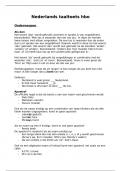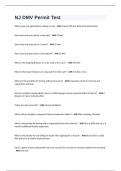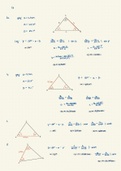Week 4 and 5
The unitary model
Justi cation
Samuelson, xed welfare index of the household
• Each person in the household has indi erence curves ordering goods, and their preferences are ⫫
of each other’s consumption
• “Since blood is thicker than water, the preferences of the di erent members are interrelated by
what might be called a “consensus” or “social welfare function” which takes into account the
deservingness or ethical worths of the consumption levels of each of the members”
Utah
ordinal ordinal
MX Y31
of
members
indicators each
iii
function
c urve
indifference
ie. The only joint decision that must be made is the allocation of total family income among the
family members
Becker, Rotten kid theorem
When one household member cares about the utility of all other household members, then all the
individuals in the household will behave so as to maximise the household's welfare, even the "rotten
kids", ie those whose utilities are egoistic.
• Developed as a criticism of Samuelson
• One family member controls family resources, who cares for other members’ such that their
preferences enter his utility function as normal goods
◦ The marginal
v42.42utility the head derives from each member’s utility can di er
• Uef
XY 0 XsYs
Then, each member maximises their own preferences subject to their budget constraint as
determined by the head of the household
• In essence, the head of the household collects all income, distributed it among members who
then spend it in order to maximise their own utility
• This requires the strong assumption of transferable utility
Arrow’s impossibility theorem: the only household utility function which respects transitivity,
unanimity (Pareto optimality) and independence of irrelevant alternatives is a dictatorship, as Becker
proposed
Advantages
• Test ability due to Slutsky
• Identi ability due to integrability
Functional forms of demand
The unitary model
Justi cation
Samuelson, xed welfare index of the household
• Each person in the household has indi erence curves ordering goods, and their preferences are ⫫
of each other’s consumption
• “Since blood is thicker than water, the preferences of the di erent members are interrelated by
what might be called a “consensus” or “social welfare function” which takes into account the
deservingness or ethical worths of the consumption levels of each of the members”
Utah
ordinal ordinal
MX Y31
of
members
indicators each
iii
function
c urve
indifference
ie. The only joint decision that must be made is the allocation of total family income among the
family members
Becker, Rotten kid theorem
When one household member cares about the utility of all other household members, then all the
individuals in the household will behave so as to maximise the household's welfare, even the "rotten
kids", ie those whose utilities are egoistic.
• Developed as a criticism of Samuelson
• One family member controls family resources, who cares for other members’ such that their
preferences enter his utility function as normal goods
◦ The marginal
v42.42utility the head derives from each member’s utility can di er
• Uef
XY 0 XsYs
Then, each member maximises their own preferences subject to their budget constraint as
determined by the head of the household
• In essence, the head of the household collects all income, distributed it among members who
then spend it in order to maximise their own utility
• This requires the strong assumption of transferable utility
Arrow’s impossibility theorem: the only household utility function which respects transitivity,
unanimity (Pareto optimality) and independence of irrelevant alternatives is a dictatorship, as Becker
proposed
Advantages
• Test ability due to Slutsky
• Identi ability due to integrability
Functional forms of demand











